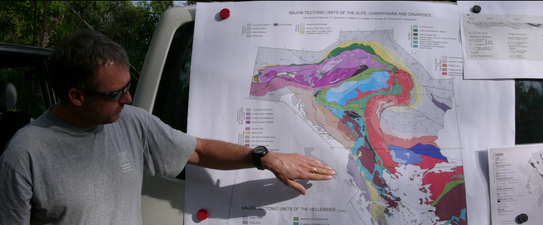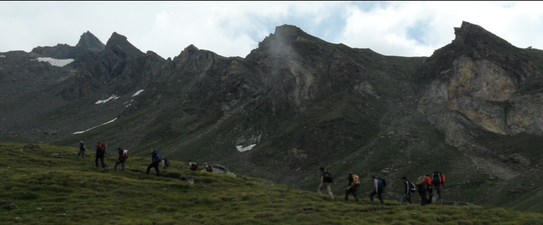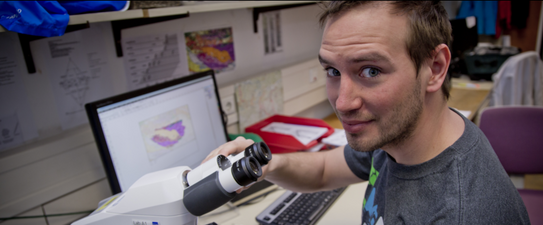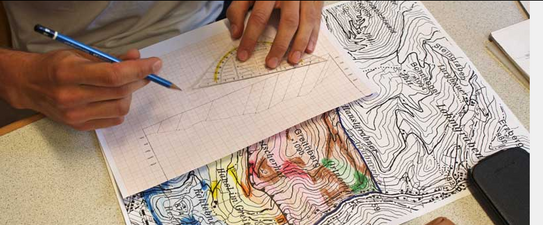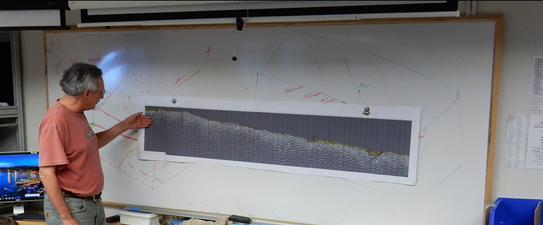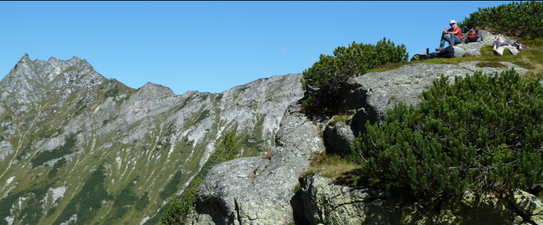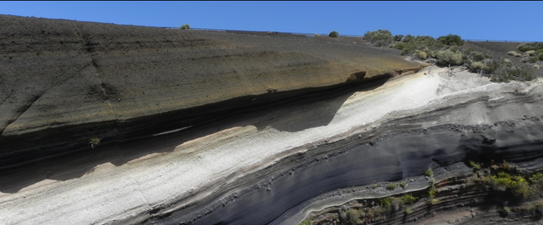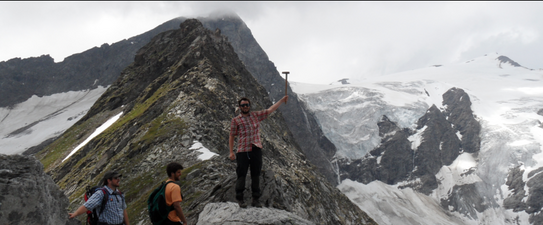Studying
The formation and structure of our planet and life on it are the subject of geosciences. Our research interest is spread over billions of years and on all scales from atoms to global developments. In addition, we are dealing with topics relevant to society and the environment (such as raw materials and resources, climate change, waste, etc.). The range of science and research is wide and varied and is reflected in is a general and multidisciplinary education, in which basic knowledge from the natural sciences basic subjects of mathematics, chemistry, physics and biology is built up in order to build up knowledge in different geoscientific areas.
https://was-studieren.uni-graz.at/de/geowissenschaften/ueber-das-studium/einleitung/
https://www.uni-graz.at/en/studies/bachelor-programmes/earth-sciences/
https://www.uni-graz.at/en/studies/master-programmes/geosciences/
The integration of basic research, applied research and engineering within the NAWI Graz Geocenter, and in the study programs of geosciences is unique in central Europe. The master's degree in Geosciences offers a wide range of specialization options (geology, petrology, palaeontology, hydrogeology, mineralogy and hydrogeochemistry, engineering geology) and a variety of scientific topics that students can deal with.
Geoscientific research and study areas are:
- Geology
- Structural Geology and Tectonics
- Paleontology
- Stratigraphy
- Geological history
- Sediments and sedimentation processes
- Petrology
- Geochemistry
- Mineralogy
- Environmental Geosciences
- Hydrogeology
- Engineering Geology
The development of theoretical knowledge is closely linked to the teaching of applied methods (e.g. physical-chemical analysis methods, profile recordings, mapping, applied statistics, etc.) in the laboratory and through field courses and excursions.
Due to the broad alignment of the curriculum, a large number of areas of interest can also be satisfied, e.g. experimental and analytical activities in laboratories, classic geological work in the field, computer-aided modeling, etc.
- Graz is an ideal location for studying geosciences. Graz lies on the eastern margin of the Alps and thus enables an outstanding insight into aspects of basic research and applied issues. Many national and international geoscientific consulting offices based in Graz, e.g. for Geotechniques, engineering geology, hydrogeology and environmental geology, enable internships parallel to studies and excellent opportunities for a direct career entry.
- The close cooperation between basic science subjects and applied subjects as well as civil engineering is a unique selling point within the German-speaking area; the involved teachers, resp. scientists have excellent international research networks.
- Since the course is not a mass course, the students are very well supported; the students are thus also involved in ongoing research projects; there is a very wide range of specialization options.
